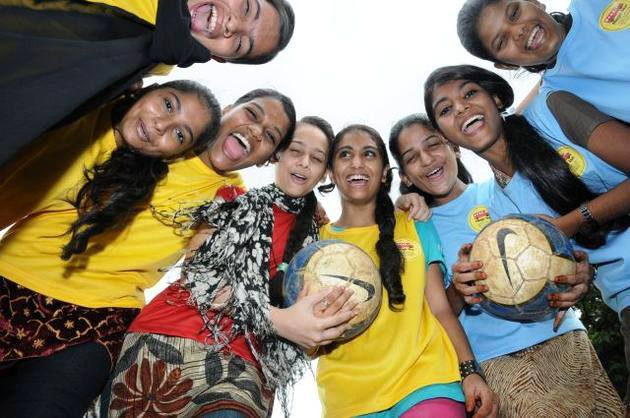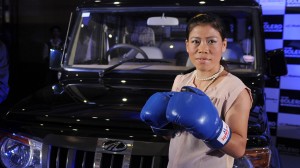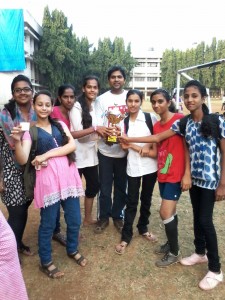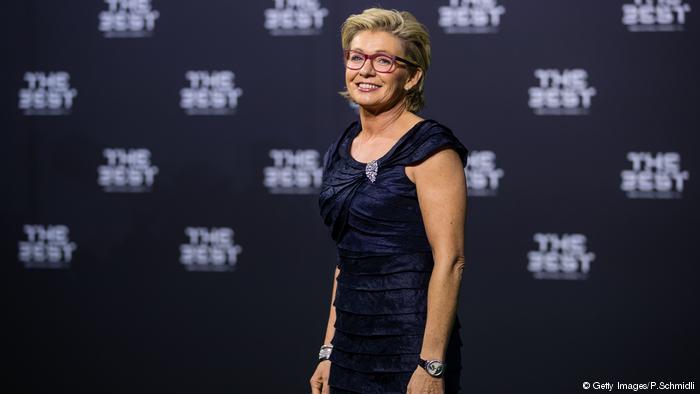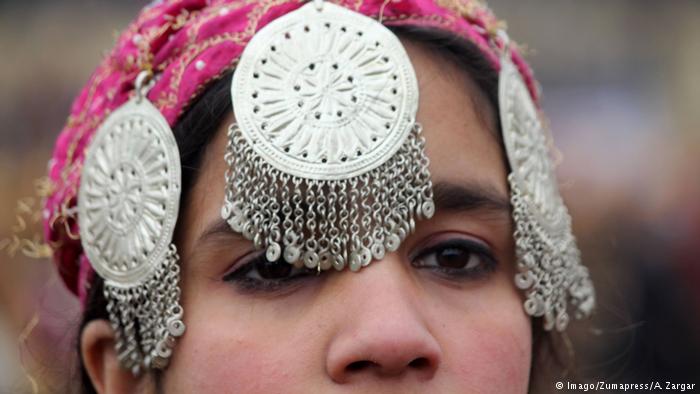Kicking out stereotypes
They started off as a secret sports club. What brought them together was their shared love for football, a game they couldn’t dream of playing because of their conservative family backgrounds. After all, how could young girls, who weren’t even allowed to step out of their homes without the hijab (veil), run around kicking ball in an open field?
Three years back, Sabah Khan, Salma Ansari, Sabah Parveen, Aquila, Saadia and 40 other girls got out of their homes in Mumbra, a small town 40 kilometres from Mumbai in western India, to play football. Today, this group has lived up to its name, Parcham, which means flag in Urdu.
Sabah Khan, the captain of this unique all-girls team, recalls how their journey of change began: “Around 2011, a bunch of us were approached by the NGO Magic Bus that uses sports as a means to help poor children lead a better life. They wanted to teach football to both girls and boys, but we told them that in Mumbra Muslim girls cannot take up a sport, let alone play with boys. That’s when they decided to exclusively train girls who were keen to try out something they had only dreamt of.”
The target was to put together a group of 40 girls, but that was easier said than done. “Most of us hail from families that struggle to make ends meet. We can never really spare time for fun and games. We study, chip in at home or work. That’s why we were unable to personally go to motivate girls to join in. However, some of us decided to make pamphlets and distribute them outside girls’ schools and colleges,” elaborates Sabah.
Where do we practise?
The next challenge was to find a ground to practice on. “We went to every school and college in the vicinity that had a ground to find out whether they would allow us to play for two hours every Sunday. Unfortunately, no one agreed,” shares the articulate leader. It was a member of the Mahila Parishad, who spoke to a board member of a temple trust to secure permission for using the open space around it for playing.
At the outset, the girls decided to call their team Parcham. Aquila, one of the founding members, narrates the story behind it, “We decided to call ourselves Parcham as we are inspired by Asrar ul Haq Majaz, better known as Majaz Lakhnawi. Through his romantic, revolutionary verses, Majaz urged women to look at the hijab not as a barrier, but as a flag or banner. He has written: ‘Tere maathe pe ye aanchal bauhat hi khoob hai, lekin tu is aanchal se ik parcham bana leti to achcha tha… (The veil covering your head and face is beautiful, but if you make a flag out of it, it would be better)’. We, too, have transformed something that many see as a sign of repression into a symbol of revolution.”
Of course, if the struggles of the group have been remarkable, then so are their individual journeys. Take the case of Saadia Bano (name changed). “When I had first heard about Parcham I immediately wanted to be a part of it. However, I did not have the courage to speak to my parents. I am not allowed to move from home without a hijab, so imagine them allowing me to play football! Initially, I used to step out every Sunday telling them that I was going to visit some friend. Then one day when I took my brother’s T-shirt to wear for a tournament my mother immediately suspected that I was doing something without telling them. When she confronted me I had to confess to her and my sister.”
Saadia’s brothers still have no inkling. “After I won a trophy at a tournament I told them that it was a friend’s. There are many like me who cannot yet be completely honest with all their family members. We don’t want to make them unhappy nor do we want our freedom curtailed. This way we all get what we want,” she says.
What’s next on Parcham’s agenda? “We want to set up a resource centre for our girls, complete with books, newspapers, computers and a wi-fi network. Every Saturday, we plan to hold meetings where we can discuss the latest news and concepts like secularism and citizenship to enable everyone to think and form opinions on subjects they are passionate about. The centre will be a safe haven for Muslims and non-Muslims to build friendships,” says Sabah.
Author: Kamayani Bali-Mahabal
Editor: Manasi Gopalakrishnan
This is a story from Womens Features Service.



